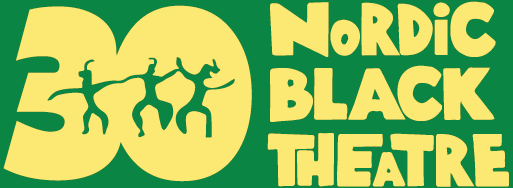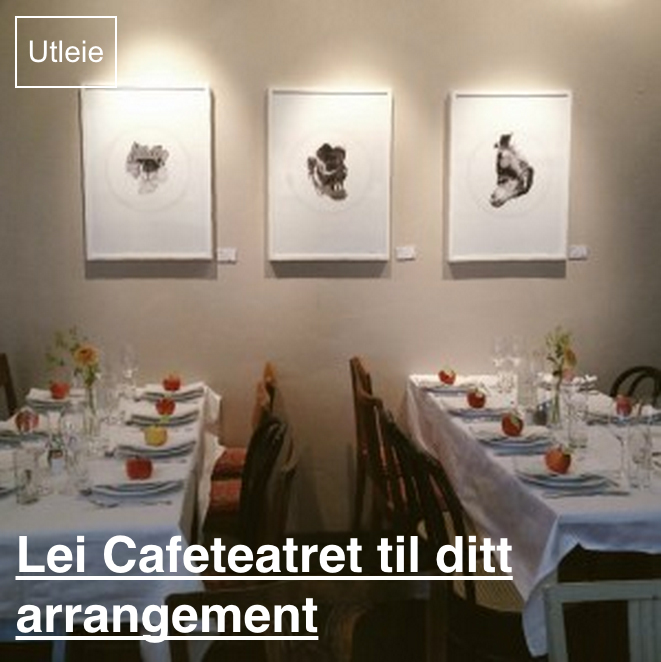Nordic Black Theatre: Drama, Diversity, and Celebration
Nordic Black Theatre's production of Great As I Am. Photo: Kristin Dietz Syverud
“A play without music is like taking a trip to the graveyard,” remarks Cliff Moustache, Artistic Director of Nordic Black Theatre in Oslo. “I am still alive. I need to breathe.”
While others in Norway enjoy a long summer holiday, this Seychelles-born playwright and director admits that he took off “only for a couple of days.” Moustache is in the middle of preparations and rewrites for his new project by Nordic Black: Hope Road 56, Revisited, which plays at the Oslo Opera House this coming February.
The title refers to the home address in Kingston, Jamaica of music legend Bob Marley. And while his music, lyrics, and worldview permeate Hope Road, Marley himself is a minor character in Moustache’s drama. “It is about the life of the decent Jamaican people,” he explains, as well as about “political conflicts, crime, survival, and poverty.”
Moustache sees Marley’s home, past and present, as an engaging metaphor to house these interconnected themes.
“Originally, Hope Road 56 was a gathering place for journalists, artists, poor people, and rastas, a place to gather daily, to work, to ‘reason’ with one another. Today, Hope Road 56 consists of tourists and visitors.”
Founded in 1992 by Moustache and Managing Director Jarl Solberg, Nordic Black Theatre presents original theatrical works throughout the year, both in Norway and abroad. Many of Moustache’s original works presented by the company focus on iconic men and women of color, such as his recent works I Am Nina, about Nina Simone, and Great As I Am, the story of Cassius Clay/Muhammed Ali. All of his productions incorporate live music into the unfolding drama, creating a theatre atmosphere that is festive and accessible. Nordic Black also presents performances by local and international guest artists at their creative home of Cafetheatret, a cabaret-style space in central Oslo offering audiences food and drink while enjoying live jazz, children’s theatre, slam poetry, and new plays.
This artistic, educational, and organizational workload is intense. While Moustache deftly juggles it all with assurance, behind his smile is a passionate determination.
“When we started twenty-five years ago, theatre in Oslo was simply not promoting the wealth and dynamism of multiculturalism,” he recalls. “There were no black actors onstage. There was no professional work for me as an actor because I could not speak Norwegian. And the Norwegian institutional theatres were still painting white actors to do the roles of black characters.”
In additional to independently presenting new and diverse performances, Nordic Black Theatre eventually started its own acting school. Through its full-time two-year curriculum, Moustache and his colleagues seek to “meet the future” of Norway’s growing diverse population by envisioning a new model of theatre education, craft, and community engagement. Moustache approaches teaching in much the same way he does his own dramatic writing, directing, or critical writing. One pillar within the school’s educational foundation is to diversify and broaden the sources within the Western/European acting tradition, and expose Norwegian acting students to writers such as Wole Soyinka, Ola Rotimi, Aimè Cèsaire, and James Baldwin.
“We want our younger generation to be aware of this literature and of these theatre figures,” he says. “Give these future theatremakers people they can relate to.”
NBX Teaterskole, Nordic Black Theatre’s two-year acting conservatory, will soon be approved as a Bachelors program in Acting by NOKUT, the Norwegian authority of education and academic excellence. While distinct entities, both the school and the theatre work together towards a common mission.
“We saw the absence of a diverse audience at other theatres,” Moustache says. “We felt that what they were presenting on stage was probably not relevant.” This experience helped him and Solberg clarify the goal of Nordic Black: “We focus on educating new actors from diverse backgrounds, working closely with their communities. We want them to see work of their sons, daughters and neighbors. Nordic Black Theatre celebrates this new, diverse audience like they are our families.”
For Moustache, “Theatre should be a wonderful mirror for all the citizens of Norway.”
The company’s ability to simultaneously unite and celebrate diversity is not limited to Nordic Black Theatre’s experiences within Norway. Moustache recalls one experience in South Africa:
Audiences who could not see the play we staged at the Grahamstown Festival traveled for ten hours by car to see the same play in Johannesburg. The theatre we played at in Johannesburg had black South African actors and audiences. Those who drove to see the play were mostly white. It was the very first time in the theatre’s history that white South Africans visited this venue. This was in 1997.
Moustache describes another incident performing Babylon by Bus, written by Moustache and Sigbjørn Nedland, during a festival in Zanzibar. Police officers started hitting audience members with their truncheons during the play, because people were standing and dancing.
“We took the microphone and said theatre is to celebrate the gathering of peacefulness,” he recalls. “We said that, if the policemen continue their attacks on our audience, then we have no other choice but to stop the play.”
Moustache pauses for dramatic effect, and then smiles broadly.
“Suddenly, the police dropped their sticks, and they too joined in the dance. To me this is the power of music, the power of drama and theatre.”

Brendan McCall
Brendan McCall, originally from the United States, has lived in Turkey, Australia, and Norway since 2008. His work in theater & dance has been presented in over 40 countries on 5 continents, and his articles have been published in English, French, Norwegian, Russian, and Belarusian. He has taught at the Yale School of Drama, the New School of Drama, New York University, and elsewhere. He recently directed the movement-theater concept album «Visions of Kerouac» (Norway) and «Swift Justice» (USA), and will direct Aaron Landsman´s site-specific «Open House» this autumn (Norway + Morocco). He serves as an international theater & dance producer for independent groups based in Norway, France, and the United States. BFA with Honors, New York University. MFA, Bennington College.
The original article was published on howlround.com:
http://howlround.com/nordic-black-theatre-drama-diversity-and-celebration


